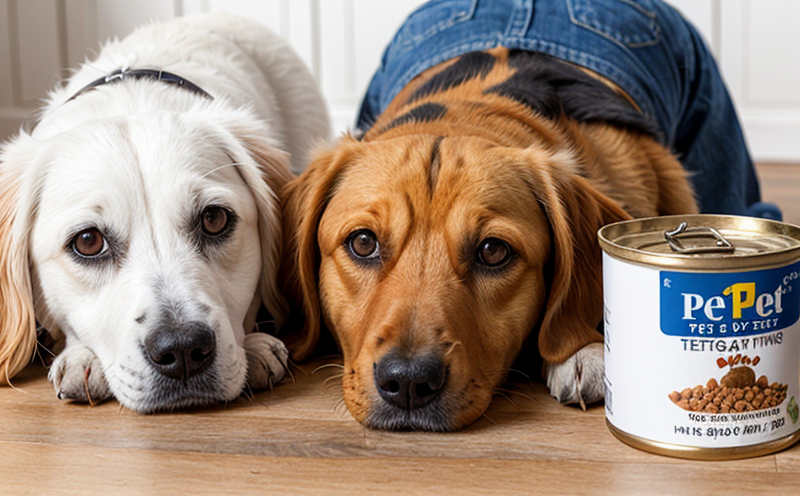ISO 60397 Calcium and Phosphorus Analysis in Pet Food
The ISO 60397 standard provides a robust framework for accurately analyzing calcium and phosphorus content in pet food products. This service is essential for ensuring that pet food meets nutritional requirements as defined by regulatory bodies and industry standards, thereby safeguarding the health of pets.
Calcium and phosphorus are critical nutrients for maintaining bone structure, muscle function, and overall skeletal integrity in animals. Deficiencies or excesses can lead to severe health issues such as osteoporosis, kidney disease, and digestive disorders. Therefore, accurate measurement is paramount in pet food manufacturing.
The analysis process involves several key steps: sample preparation, digestion, calibration of the analytical instruments, and precise quantification of calcium and phosphorus using atomic absorption spectroscopy (AAS) or inductively coupled plasma optical emission spectrometry (ICP-OES).
Sample preparation is critical. This typically includes grinding the pet food into a fine powder to ensure uniform digestion. Digestion then involves dissolving the sample in a suitable acid mixture, usually nitric and perchloric acids, under controlled conditions of temperature and time.
The calibration step ensures that the analytical instruments are accurate and precise. Calibration standards with known concentrations of calcium and phosphorus are used to set up the instrument's response for these elements. This process is crucial for obtaining reliable results.
Once digestion is complete, the solution is filtered and diluted if necessary before being placed into the spectrometer for analysis. The spectrometer measures the absorption or emission of light at specific wavelengths corresponding to calcium and phosphorus. The intensity of this light is directly proportional to the concentration of these elements in the sample.
The results are then analyzed using statistical methods to ensure precision and accuracy. This includes checking for any outliers and ensuring that the data meets the acceptance criteria set forth by ISO 60397, which specifies a certain level of confidence and precision.
The final step is reporting the results in a clear and concise manner. This report should include all relevant details such as the sample ID, method used, detection limits, and any deviations from expected values.
- Customer Impact: Ensures compliance with international standards ensuring pet health and safety.
- Sustainability: Helps in formulating balanced diets leading to healthier pets which can reduce the environmental burden associated with veterinary care.
- Economic Benefits: Avoids product recalls and legal issues due to non-compliance, thus protecting brand reputation.
In conclusion, this service plays a vital role in maintaining the quality and safety of pet food products. By adhering strictly to ISO 60397, we can provide reliable data that supports regulatory compliance and product integrity.
Eurolab Advantages
At Eurolab, our commitment to excellence in pet food testing is reflected in the precision and reliability of our services. Our state-of-the-art laboratories are equipped with the latest technology, ensuring that every sample undergoes rigorous analysis.
We employ highly trained professionals who possess extensive experience in handling complex analytical challenges. This expertise translates into accurate results that can be trusted by all stakeholders involved in pet food production.
Our services extend beyond just providing test results; we offer comprehensive support throughout the entire process, from sample preparation to final report generation. This includes detailed insights and recommendations based on our findings which can help improve product formulations.
We also adhere strictly to international standards such as ISO 60397 and others relevant to pet food testing. Compliance with these standards ensures that our clients meet regulatory requirements globally, reducing the risk of non-compliance penalties.
Furthermore, Eurolab maintains strict quality control measures at every stage of the process. This guarantees consistent high-quality results which are crucial for maintaining brand reputation and customer trust.





